Previous call notes. Next call 2014-02-13 (2nd Thursday of even months) at 15:00 UTC.
#Participants
- Herb Lainchbury
- Tom Lee
- Mike Linksvayer
- Rufus Pollock
- Andrew Stott
- Kat Walsh
#Agenda/Notes
#Agenda
New Open Definition Advisory Council chair for 2014
Herb Lainchbury! As discussed on-list.
Herb stated eagerness to improve the approval process. Mike will send to the list lessons learned from 2013. Biggest impression was that approval process works much better when it is more: license creators engage with the Advisory Council during license development. When a license is “thrown over the wall”, ambiguities not evident to the creators make approval difficult at best.
Open Definition 2.0
Walkthrough and structure of current draft. Comments and action items:
- Rewrite introduction, highlight principle anyone/any purpose, possibly scope some way other than defining “knowledge”.
- ACTION: Mike to draft.
- Each item in definition should begin with stating the principle of the item, full stop. Examples should be clearly non-exhaustive.
- ACTION: open for a volunteer!
- Headings should be consistent – now some are one-word, others more prescriptive on their own. All prescriptive is a good goal, allowing a skimmer of headings to basically understand.
- ACTION: Herb to attempt bringing all to consistent, prescriptive state.
- Suggestion from Karl Fogel for an explicit statement about what permissions a license must require in order to protect licensee privacy. Discussion of whether this in practice is a license issue, or deployment/access/work issue. Registration/identification requirements seen in government data portals and their ToS, not quite the same thing.
- ACTION: Mike to start discussion on-list, invite Karl to elaborate.
- Discussion of how to address license proliferation in Open Definition 2.0, which is most powerful place to make a statement. We want to encourage only licenses that are good for the ecosystem, but not go so far as saying that a redundant license that is unambiguously open is not Open. How do we encourage folks developing indended-to-be-open licenses to engage early in their policy thinking – before the actual policy is established?
- IDEA: Add a before-license-completed section to the approval process, encouraging would-be stewards of new licenses to consult with the Advisory Council.
- IDEA: Outreach to potential license stewards, such that they learn of the Open Definition process before they have completed their licenses. Nobody in the “open” community wants more redundant licenses, each with own problems. What can OKFN and other organizations do to inform local activists and other networks that potential stewards might come in contact with early?
- ACTION: Mike to start a thread on the list about non-proliferation of license(s) and how we might encourage the “right thing” in the OD.
- ACTION: Herb to propose pre-completion process addition.
License review
CC-BY-4.0 and CC-BY-SA-4.0
No questions. Formal conformance vote will begin on-list in next day. The 4.0 licenses are much easier to read, read them: CC-BY-4.0 and CC-BY-SA-4.0.
Alberta, British Columbia OGLs, GeoLicence V1.2.1-Open
Revisit after release of Open Definition 2.0. See new on-list discussion: Provincial OGLs, GeoLicence
Tech
Defer discussion to on-line. See especially Engel Nyst’s contributions, including comment on licenses and opendefinition repositories.
